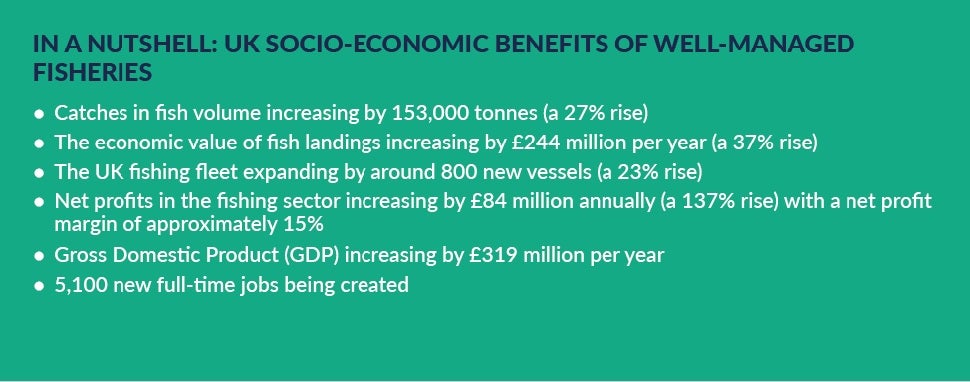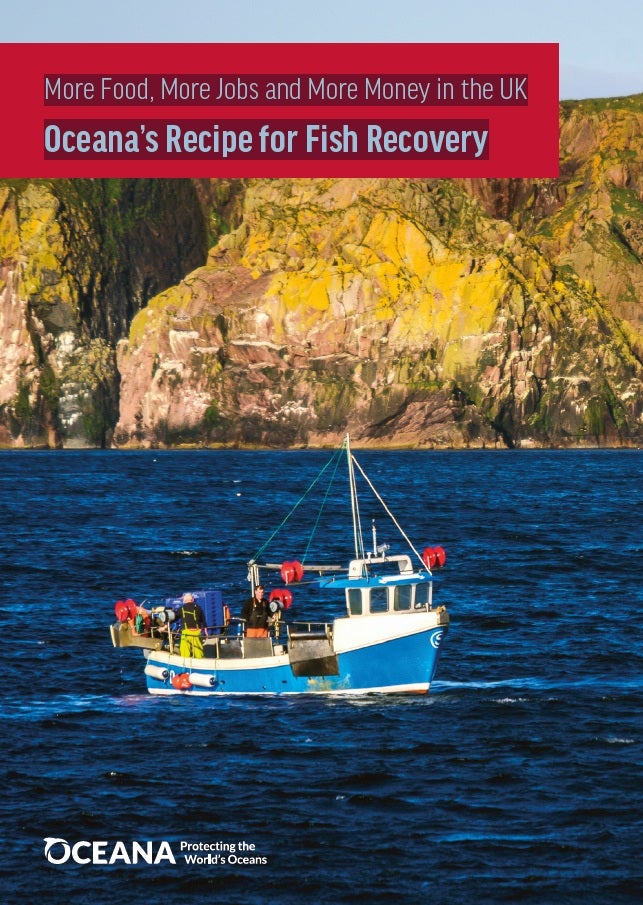Report | April, 2018
More Food, More Jobs and More Money in the UK Oceana’s Recipe for Fish Recovery
The United Kingdom (UK) is a global fishing nation and a major player in fisheries in Europe. However, fisheries in Europe are in an alarming state of affairs. Sixty-four percent of stocks in European seas are now classed as ‘overfished’1, meaning that fish are caught at a quicker rate than they can naturally reproduce.
Key fishing waters for UK vessels – such as North-Western Waters and the North Sea – now have an overfishing rate of 49% and 44% respectively1. Some stocks – such as cod in the West of Scotland – have suffered historical critical lows, which put jobs and livelihoods at risk.
Overfishing is now a global environmental and food security problem that not only affects our oceans and its resources but also jobs, people and coastal communities.
The UK’s decision to leave the European Union (EU) has brought the future of UK fisheries under public and political scrutiny and into the media spotlight. As the way EU and UK fisheries are managed is set to change following Brexit, there is a window of opportunity to transition to a more sustainable management that would benefit the fishing industry, business, the economy and society.
Oceana’s ground‑breaking study showcases the socio‑economic benefits of rebuilding UK fisheries, setting a political, economic and employment business case for sustainable fishing.
As fisheries in the UK are currently not sustainably managed in a way to reach their full potential, Oceana analysed 75 of the most important species for the UK in EU waters based on commercial value and landings. The findings conclude that if UK fisheries were managed sustainably over the next ten years, the socio-economic benefits could be major.


